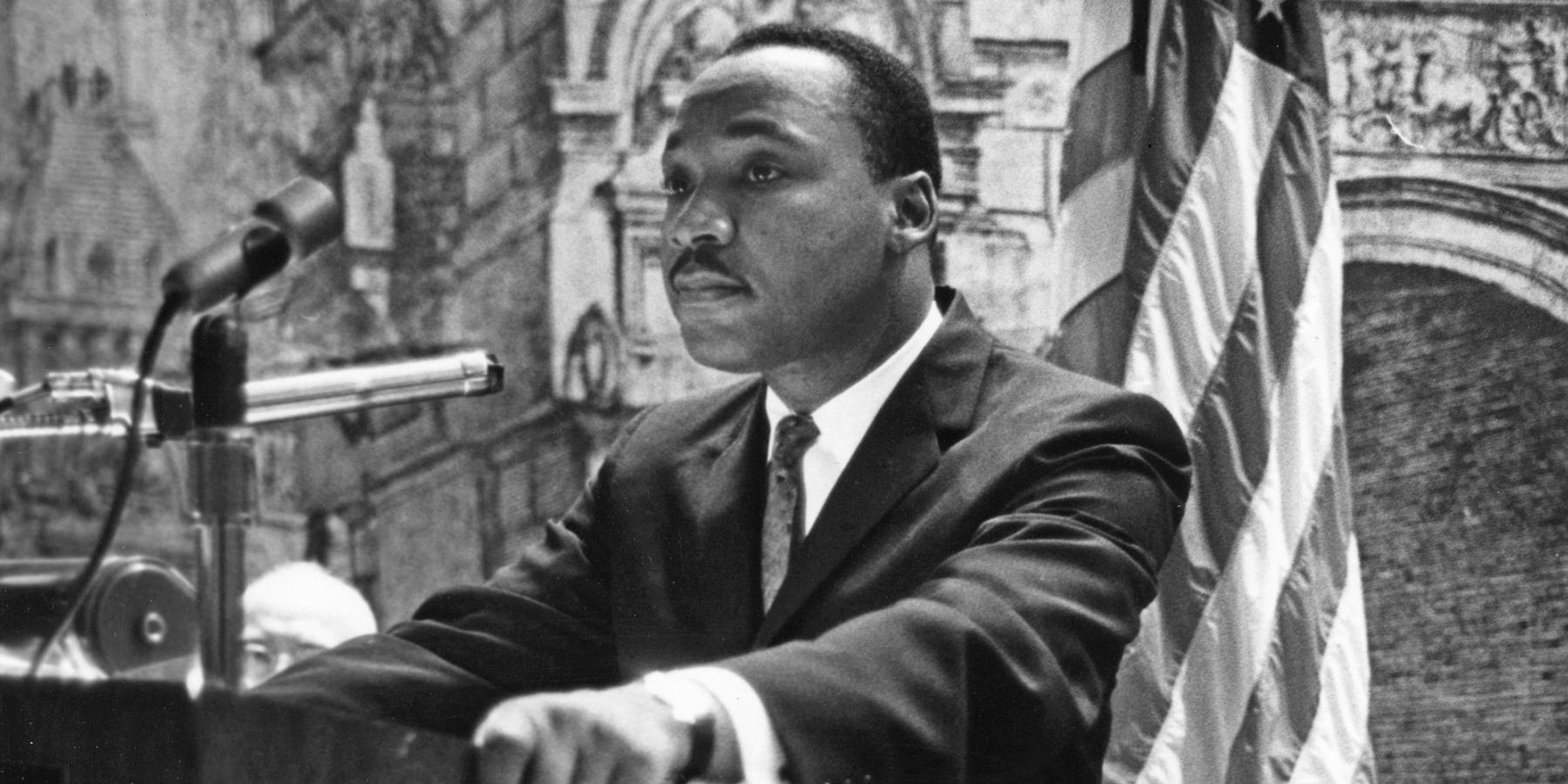On September 12, 1962, the Reverend Dr. Martin Luther King, Jr. delivered a speech in New York City to commemorate the 100th anniversary of the issuance of Abraham Lincoln’s Preliminary Emancipation Proclamation. In a measured but passionate tone, Dr. King reviewed the history of human rights in America, noting that the Declaration of Independence and the Emancipation Proclamation had fallen far short of achieving equality for all of its citizens.
Lamenting the disparity of blacks and whites in every aspect of society, he states, “The Proclamation of Inferiority has contended with the Proclamation of Emancipation, negating its liberating force.” The only way to commemorate the Emancipation Proclamation, he said, “is to make its declaration of freedom real; to reach back to the origins of our nation when our message of equality electrified an unfree world, and reaffirm democracy by deeds as bold and daring as the issuance of the Emancipation Proclamation.”
The centennial of the Civil War occurred in the midst and throes of the Civil Rights Movement. While commemorations and parades honored veterans and military victories, civil rights workers across the nation were protesting segregation, voter intimidation and housing discrimination. New York State Governor, Nelson Rockefeller, charged his state’s Centennial Commission with celebrating the eradication of slavery. Fittingly, New York State owned the only copy of the Preliminary Emancipation Proclamation written in Lincoln’s own hand. A recent discovery at the New York State Museum has revealed the only known audio recording of the Civil War Centennial program, which includes Dr. King’s 26-minute speech honoring Lincoln’s document.
This online presentation allows the viewer to experience an occasion of immense importance in New York State’s and the nation’s history. The recording in the State Museum’s collection is paired with the original speech document in the collection of the State Archives, so that one can hear and read the speech at the same time. The program of the September 12, 1962 commemoration dinner and an article about the speech in the context of the New York Civil War Centennial Commission’s activities is also available. Finally, teachers will find information on how to use this speech in the classroom to enhance their knowledge of this important part of our heritage.


